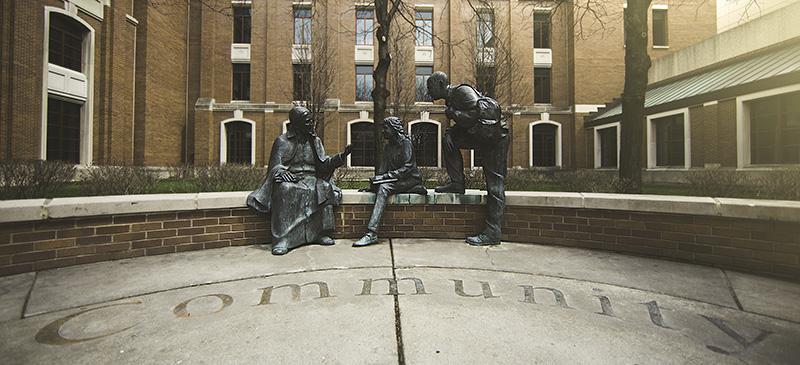
exploiting unpaid interns as a source of “free labor.” (ARKASHA STEVENSON | MCT CAMPUS)
Anybody involved with doing work for a company or another person wants to feel like the work they are doing is worth something and that the time and effort they are putting in is appreciated. However, with the growing popularity of unpaid internships, is work without pay the precedent that’s being set?
Experience is one of the most prized possessions a new graduate can have in the hunt for that first job. Aside from focusing the majority of their attention on school and getting the right grades to be appealing to employers, having an internship at the same time is becoming less of an option and more of a necessity to have a fighting chance at landing a job. Consequently, employers are taking advantage of the current reality students are living in and, more times than not, offering internships that don’t pay anything at all.
In a recent analysis of government data regarding student debt published in The Wall Street Journal by Mark Kantrowitz of the Edvisors organization, the 2014 graduating class has been crowned the most indebted class to date. On average, each student that borrowed money throughout his or her college career now owes more than $30,000 in student debt. An outsider could potentially interpret that number as students being lazy, when in reality these students are juggling classes, work and student organizations all at once, without pay. With a little help, students could potentially curtail this debt with some form of pay from the internships they’re becoming involved with.
“Unpaid internships are more or less just volunteering, not a job,” Jake Fessler, a 21-year-old international studies major, said.
Not receiving any compensation for the hard work that interns put in for a wide variety of companies sets a very bad precedent for young people. Growing up with the impression that the work you are doing is not worth anything leads students down a slippery slope with low expectations.
At the same time, though, experience is and always will be the best asset an aspiring professional can have, paid or not.
“My unpaid internship offers me something better than money, it offers me connections and a network of people to work with,” Martin Vitek, a senior at DePaul who is currently interning for the Packback organization, said.
Each opportunity and internship may be unique in its own way. However, unpaid internships also put a strain on the workforce for other people who are in the market for a full-time job, but can’t find any opportunities due to companies’ rising utilization of unpaid college internships, which function more or less as “free work.”
When trying to decide whether or not to hire an intern who you can train and have work for free, or hire a graduate with all of the credentials and experience who expects to earn a salary, it’s a no-brainer that companies are leaning toward the internship route. After all, it’s free work.
“It’s free labor, and especially with so many of these companies and organizations having a ton of money to work with, free labor should never exist,” Fessler said.
It’s an interesting dichotomy that has persisted in the world of unpaid internships. On the one hand, everyone would like to see that all internships are paid; but on the flip side, would this type of leap cause crucial internship opportunities to disappear and rob students and new graduates of the valuable experience that is needed to make the first steps in pursuing a career? Despite the existing criticism, the National Association of Colleges and Employers still reports that almost half of all internships are unpaid.
At the end of the day, it’s hard to say whether or not internships should be paid or unpaid when the experience that is gained from such opportunities is really what’s important. Maybe employers could meet students somewhere in the middle and provide them with some pay, so the idea that their work is worthless doesn’t continue. Nonetheless, some type of needed change is evident, as the debt that students face after college doesn’t show any signs of slowing.



